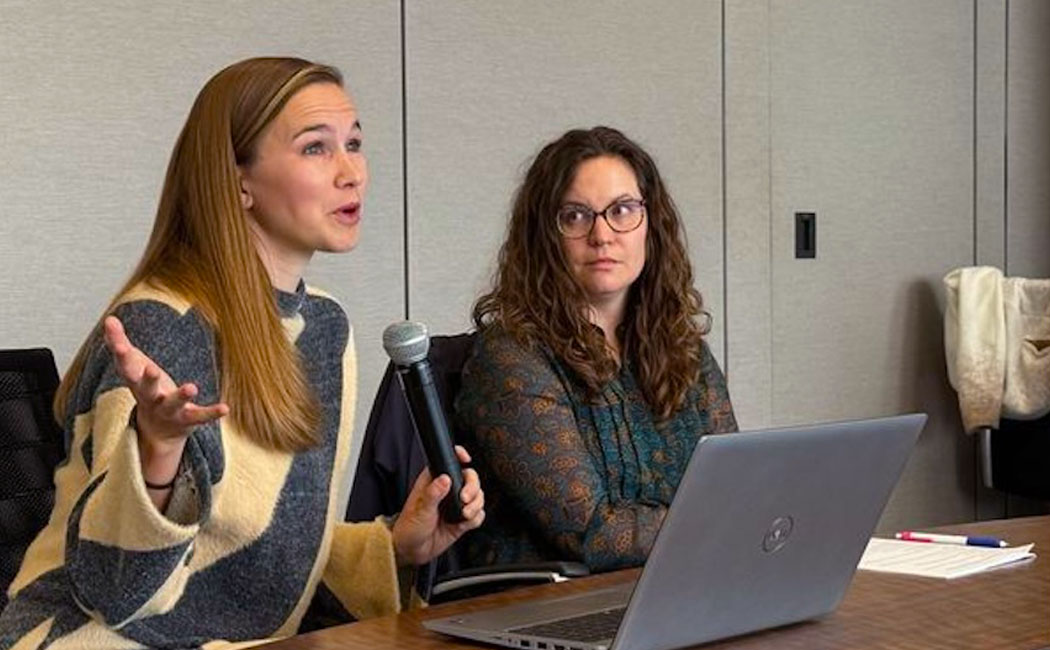
For new mothers, returning to work often means deciding whether to continue breastfeeding. But systemic barriers often make it difficult to do so.
To explore the relationship between breastfeeding and returning to work, Kailey Snyder, assistant professor in the School of Health & Kinesiology at the University of Nebraska at Omaha, partnered with the Nebraska Academy for Methodology, Analytics and Psychometrics (MAP Academy) to examine a decade’s worth of national lactation data.
“I’m looking at how to support lactation once the mother returns to work,” she said. “We know there are barriers that are experienced there, but we still are pinpointing what those barriers are and what factors influence those barriers.”
Snyder in interested in how employment affects breastfeeding, including factors like physical activity, sedentary behavior and work hours.
Through the MAP Academy’s Applied Analytics and Data Infrastructure (AADI) Catalyst Program, Snyder and her team collaborated with MAP Academy experts to examine data gathered during the past 10 years through the National Health and Nutrition Examination Survey — a large national data set housed at the Centers for Disease Control and Prevention.
Working with Natlie Koziol, former MAP Academy research associate professor, and Mingqi Li, MAP Academy postdoctoral fellow, Snyder analyzed the data to better understand the relationship between lactation and return to work.
“They definitely have a skill set that allows us to take these ideas and have them come to fruition quickly, which is exciting,” Snyder said. “They have provided great insights. I think if this was a project I wanted to do on my own, I would have been looking at a year or two to pull that data and make sure it’s clean. They have been able to expedite things for us.”
It’s been a truly collaborative relationship, where the MAP Academy personnel are invested in the project. They did a nice job of helping us tailor the research questions to fit the parameters of the data, which I think could only happen with the expertise they have.”
— Kailey Snyder, assistant professor in the School of Health & Kinesiology, UNO
Snyder will submit a paper with her findings for review this spring. She plans to work with state-level community partners to expand and enhance resources on the subject, including the CARE for Breastfeeding Mothers project.
“We’re going to focus on supporting child care providers to continue to help Mom at that point of return to work,” she said. “If we can equip them with some of these skills and resources, we’ll help continue to promote those healthy behaviors, such as physical activity and healthy eating habits for the mothers.”
Snyder said she is grateful for the opportunity to work with the MAP Academy.
“It’s been a truly collaborative relationship, where the MAP Academy personnel are invested in the project,” she said. “They did a nice job of helping us tailor the research questions to fit the parameters of the data, which I think could only happen with the expertise they have.”
Now in its second year, the AADI Catalyst Program enables faculty to engage with MAP Academy researchers, drawing upon their expertise in rigorous analysis and database support. The program also helps lay the groundwork for future research collaboration.
The program is funded by a grant from the Nebraska Research Initiative and supports collaboration among the MAP Academy team and interdisciplinary faculty across the University of Nebraska system who conduct field-based human subjects research.